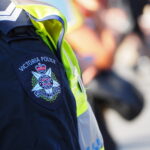Victoria Plans to Lock Up Those Who Fail to Self Isolate

As Victorian Covid case numbers show a steady decline, and there’s hope on the horizon that lockdowns may ease, Victoria is planning to introduce legislation that would allow the detention of anyone who fails to self-isolate if they have tested positive for Covid-19, or have been in close contact with someone with the virus coronavirus.
There’s widespread concern that the bill would impact human rights by allowing citizens to be placed in arbitrary detention.
The Victorian Bar Association has written to the Andrews government asking it to reconsider the legislation which would hand power to Health Department-appointed authorised officers to detain anyone they “reasonably believe” may negligently spread the virus.
A separate letter from a group of retired judges and leading QCs has also been sent to the Victorian Premier warning him against the emergency measures which they say would result in “unprecedented, excessive powers.”
Under the proposed legislation, the Victorian government could also enlist protective services officers and WorkSafe inspectors to enforce public health directions which extends one-off changes made in April for another six months.
And of course, there is a major concern that the law could be applied to the ‘conspiracy theorists’ who refuse to self isolate, or homeless people who don’t have the capacity to self-isolate. And if caught, they would be detained in places where they could be monitored, such as designated hotels, for the period reasonably necessary to eliminate or reduce a serious risk to public health. The authorised officers can also restrict movement, search premises without a warrant and give other directions that are deemed necessary to protect public health.
The Government argues the Omnibus – Emergency Measures Bill strengthens the state’s pandemic response. Both the State’s Attorney-General Jill Hennessy and the Health Minister are in favour of the legislation.
However, as the legal experts point out: ‘Unconstrained and undefined subjective powers naturally invite the tendency to exercise them to the fullest, and in breach of human rights.’
And a rather concerning blow for democracy and freedom.
They are calling for changes to the legislation to ensure human rights protections, including that cases of people who have been detained to be reviewed by the Chief Health Officer within 24 hours of their incarceration, and for the Government to narrow the scope of those who can be appointed to enforce public health rules.
Recently the government extended the state of emergency and state of disaster for another four weeks, ending at 11.59pm on October 11, having previously passed a law to allow it to continue declaring four-week emergency declarations for another six months.
The Omnibus (Emergency Measures) Bill passed through government-controlled lower house on Friday but it faces opposition in the upper house. It’s understood that the Liberals and Nationals are fiercely opposed to the bill, and the Greens oppose some of its components.
The Bill also extends by six months one-off pandemic-related changes made in April, including the ability to make procedural changes by government regulation rather than legislation.
Victoria has both a state of emergency and a state of disaster in place. The state of disaster grants additional powers to the Minister for Police and Emergency Services, Lisa Neville, to control and restrict entry, movement within and departure from a disaster area – in this case, the whole state – and to direct government agencies and allocate resources to enforce these restrictions.
Since August, metropolitan Melbourne has been in lockdown and under curfew, and many of the residents were hoping that with Covid case numbers in decline, they could soon be getting on with their lives, but if the extreme Omnibus legislation passes as a measure to ‘cope with’ the ongoing pandemic, it’s likely their freedom will be heavily impacted for some time to come.







